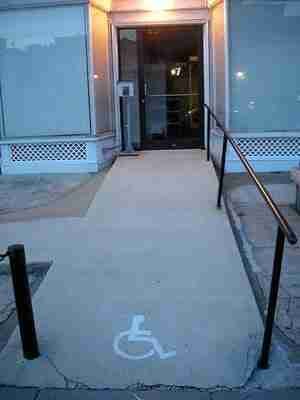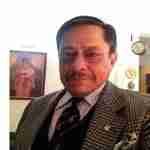When is disability a challenge? Only when you think of it like one.
A triple gold medalist from Rashtriya Indian Military College (RIMC), National Defence Academy (NDA) and Indian Military Academy (IMA), Jayanta Kumar Sengupta, popularly known as Jojo, was commissioned into the 16th Light Cavalry, one of Indian Army’s oldest regiments in December 1962. His third gold medal was awarded for topping his batch, the 31st IMA Course, which was telescoped to 6 months of the one-year training schedule, in order to enable to Indian Armed Forces to meet the new defence challenges confronted by it due to the unprovoked aggression by China in October 1962.
Jojo was doing a gunnery instructors course at the Armoured Corps School and Centre, Ahmednagar (Maharashtra), when the second India- Pakistan war again waged by Pakistan broke out in 1965. All young officers and soldiers doing courses at this training establishment were re-called to their respective regiments.
Jojo reported to the 16th Cavalry and was pitched into the operations. On September 21, his fourth day in the war he was conducting an artillery shoot from his tank, sighting targets through the binocular sights in the commander’s hatch of the Centurion tank when an armour-piercing projectile hit very close. All the glass of the sights got shattered and hit Jojo in his eyes and face.
After a prolonged period of convalescing at Army Hospital, Delhi Cantt and INHS Asvini, the Naval Hospital at Mumbai, Jojo underwent rehabilitation and mobility training at St Dunstan’s in England and he got the opportunity to learn Braille and typing and was also able to access other rehabilitation services. He left the Army in 1967 and took up the dealership of Tata Oil Mills in Calcutta. In 1972, he was also allotted the LPG distributorship of Indian Oil in Siliguri by the Directorate General Resettlement.
When disability becomes just a word
Jojo with his wife Rita and several like-minded disabled youth founded the North Bengal Council for the Disabled (NBCD) in 1990 and in 1998 they raised the Prerana Educational Centre, which began in a small garage in their house. Prerana, which has now grown into a major Special Educational Centre in North Bengal, is a cross-disability educational centre for children with disabilities and seeks to provide holistic learning through a well-designed curriculum. In 1998 NBCD also launched a large Community-Based Rehabilitation Programme covering disabled persons in 700 villages in the Siliguri Sub Division. Both the programs are now running successfully and have been able to reach out to thousands of persons with disabilities with vital information and a wide range of services.
Rita, a trained teacher has worked closely with Jojo in establishing NBCD and the Prerana Educational Centre. They have twin daughters, Sreerupa and Sreemoyee and a son, Vivek. Sreerupa got married to Major (retd.) Gopal Mitra, SM (Sena Medal for gallantry) in 2003. Major Mitra, who served in 15 Mahar Regiment lost his vision as a result of an explosion while fighting terrorists in Kupwara, Jammu and Kashmir in 2000.

Major Mitra completed his Masters in Social Work from TATA Institute of Social Sciences, Mumbai (TISS) and went on to obtain a scholarship to undertake an MSC in Development Management at the London School of Economics. At both Institutions, he remained at the top of his class. Having worked earlier as the International Campaign Manager for Youth Voices, Leonard Cheshire Disability, a UK based charity organisation working for the rights of persons with disabilities all over the world, he is now working in United Nations Children’s Emergency Fund (UNICEF) as Programme Specialist for disability. He is the first Indian with disabilities to occupy this key UNICEF post.
Sreerupa did her Masters from London School of Economics and also Masters in Social Work from TISS, Mumbai. The other twin Sreemoyi, who teaches, is presently doing a course at the London Institute of Education. Their son, Vivek, is an executive director with Goldman Sachs.
Changing mindsets
In 2009 National Institute for the Visually Handicapped (NIVH) observed the International Day of Persons with Disabilities by felicitating five visually challenged persons for their contribution in the various fields. It is extremely important to integrate persons with disability in the mainstream and to recognise their contribution to society and also to make the society aware of their abilities. Disability, then just becomes a word. Capt JK Sengupta was one of five visually challenged persons selected for being conferred the NIVH Excellence Award 2009 presented by Margaret Alva, governor of Uttarakhand.
I had the pleasure of interacting recently with Jojo and Rita Sengupta at the Cavalry Veteran’s Reunion at Delhi Cantt in the presence of former Army Chief Gen VN Sharma, of 16th Cavalry and Jojo’s course-mate, Brig Ravi Malhotra, Secretary, Cavalry Officers’ Association, when they were in Delhi for a Prerana-related workshop.
The workshop in Delhi was conducted by CBM (a leading international NGO working in the field of disability, headquartered in Bensheim, Germany and its South Asia offices at Bangalore) on the theme of Inclusive Development. Elaborating on the subject of disability, Jojo said “Segments of the society, who tended to live and grow in isolation, should now be taken into the mainstream. One of these marginalised groups is those with disabilities. The thinking is that persons with disability should become as full an integral part of the community as possible”.

He then mentioned the three aspects that need to be focused upon: “Firstly, build the capacity of the persons with a disability, so that they can connect on reasonably equal terms. Equally, it is necessary to build the capacities of the community and family to create an enabling environment. Secondly, it becomes necessary to create a barrier-free environment, where there is freedom of more movement and access by persons with different types of disabilities. Thirdly, it is important to bring about an attitudinal change in all sections of the community, and in particular all primary and secondary stakeholders. When there is progress in all three sectors, only then disabled persons can be progressively and effectively participate in inclusive development”.
The thinking is that persons with disability should become as full an integral part of the community as possible.
He explained further: “Negative stereotypical attitudes vanish as more and more persons with a disability come into daily contact with the rest. As negative stereotypes fade out, they are replaced by positive understanding and empathy. Then there is a question of human rights. A disabled person has an equal right to belong to the community in which he lives as the others. Now that India is a signatory to the United Nations Convention on the Rights of persons with disabilities, it has become imperative that the government adopts inclusive strategies”.
The thinking is that persons with disability should become as full an integral part of the community as possible.
The next part is one which those human rights organisations more based on rhetoric as well as government departments related to welfare, but usually too slow, should note and implement: “Essentially the move is away from the existing Rehabilitation model to the Right based model.
Simply speaking, in the Rehabilitation model, the relationship was between the beneficiary and the service provider. Beneficiary is the person with disability and the service provider could be School or the Primary health centre or the Sheltered workshop or even the family or village. On the other hand, Right based model of inclusive development, the person with disability is called the Right Holder. The service provider is now known as the Duty Bearer.
The simple change of nomenclature is highly significant and speaks volumes. That then is the basis of the switch to a rights-based approach. The disadvantaged member of society is the rights holder. That means it is his or her right as a human being to enjoy all those rights which others enjoy. All the rest of us automatically to a greater or lesser degree, are the duty bearers. Disability, like many say, is more in the thinking than ability.
Quite obviously the government the educational institutions the health services, the public works department, the potential employers, the family itself, the cultural leaders, the religious leaders, the transport system, and so forth are the chief duty bearers. In this paradigm attitudinal shift, it is the expectation to have a natural and constitutional right protected of persons with disabilities, and it becomes the beholden duty of everybody else to ensure that those rights are not denied. This is the crux of inclusive development”.
Inclusive development
The first workshop, held in May 2012, was to understand the principles of Inclusive Development. The second workshop was to understand inclusive development in a Budgetary perspective. Prerana was made to understand the basic terms and concepts of the national budget, in other words the annual financial bill, how budgetary allocations are made and how to study and monitor budgetary expenditures. This was obviously rather a new territory but in the view of the modern development worker, who wishes to analyse government policy and in its translation into monetary terms, and see whether the money is going where it should.
This is necessary in case development advocates wish to lobby effectively with the government. So both the workshops were in the nature of ground breaking efforts since they are both exploring areas which have normally not been ventured into.

As negative stereotypes fade out, they are replaced by positive understanding and empathy.
“Also, of course, the whole of the development along inclusive lines is still in a conceptual stage and it is up to development practitioners like all us NGO wallahs, to make this model a reality and to make government budgetary provisions realistic and in keeping with the United Nations millennium development goals. The principles of affirmative action universally designed and reasonable accommodation as envisaged in the United Nations Convention on the Rights of Persons with Disabilities (PWD) have to be to taken account of in framing the new draft PWD rights legislation, planned to be tabled in Parliament in the winter session this year”, said Jojo.
Rita Senguta cannot be blamed at all for wishing sometimes that Jojo should have taken the academic path after his injury, rather than all the struggle they went through to achieve what they have, but then also accepts that their efforts have at last been rewarding. “It is a new road that we are going to embark upon but an exciting one”, Jojo concluded.


